
Southern University of Science and Technology 南方科技大学
Program of Biological Sciences for International Students (2020)
I. Introduction
Life science has been central to the development of the 21st century natural sciences, and its development is related to people's health and well-being. Today, life and health industry has become a new driving force to promote the development of the world economy. Therefore, the central and local governments set the strategic priorities to foster advancing emerging life science related industries.
Life science is one of the key disciplines of the Southern University of Science and Technology (SUSTech). Founded in 2012, the Department of Biology is among the first established academic departments in the university. Since its founding, the Department has assembled groups of faculty members with diverse research interests and expertise to tackle fundamental problems of life science. All of the faculty members had prior research experience at top internationally-acclaimed universities before joining SUSTech and some of them had been awarded tenures in these universities or research institutions worldwide.
The faculty of the department are supported by the state-of-the-art scientific research platform facilities and talent recruitment programs, such as the Guangdong Provincial Key Laboratory of Cellular Microenvironment and Disease Research, Key Laboratory of Molecular Design for Plant Cell Factory of Guangdong Higher Education Institutes, Guangdong Provincial "Pearl River Talent Program" for Innovation and Entrepreneurship, Cryo-EM Center, Plant and Food Research Institute, SUSTech-UQ Joint Centre for Neuroscience and Neural Engineering and Experimental Animal Center. Concentrated on five major areas, namely molecular cell biology, neurobiology, plant biology, system biology and structural biology, their research focuses on the frontiers of life science and high-impact human health issues, with cross-disciplinary approaches.
The Department of Biology's life science program was approved as a key discipline at the provincial level (Guangdong) in 2016. In 2018, the Department was authorized to confer doctorate and master’s degrees to graduate students, and was designated as a postdoctoral workstation in 2019. These developments set the department on track to be developed as a top-tier academic institution of Guangdong province.
On this basis, we established a major in Biological Sciences, aiming to inspire students to understand the nature of life at different levels, such as molecules, cells, individuals, etc., through extensive basic training in modern biology and a research-oriented learning environment, while improving students' ability to solve problems by means of scientific methods.
II. Objectives and Learning Outcomes
(I) Objectives
In teaching, the major emphasizes the core basic concept of biological science and the concept of applied science, and applies modern scientific methods to encourage students to study biochemistry, microbiology, molecular biology, cell biology, genetics, and animal physiology through theoretical courses, experiments and seminars. Meanwhile, students will learn how to critically evaluate original research literature by means of paper reading and class discussion. Through various ways of learning, students will master valuable analytical, organizational, and communication skills to become professionals who will be competent in a variety of careers or continue their studies.
(II) Requirements
1. Mastering the basic theoretical knowledge of mathematics, physics, chemistry and life science, and forming a relatively systematic scientific world view and methodology.
2. Having the ability to write scientific and technological papers in English and to do academic presentations in English.
3. Understanding the latest developments in the biological science and carrying out scientific research in the laboratory.
4. Having the comprehensive ability to apply the theoretical knowledge and skills and engaging in research in biological science and related sciences.
III. Study Length and Graduation Requirements
Study length: 4 years
Degree conferred: Bachelor of Science
The minimum credit requirement for graduation: 138 credits (not including English courses);
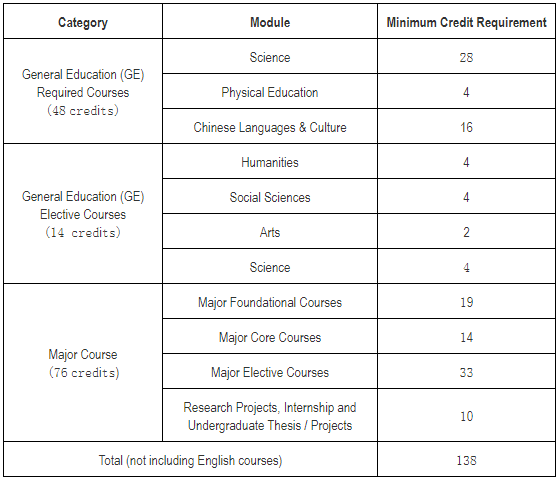
IV. Discipline
Biological Sciences
V. Main Courses
For details please refer to Major Required Course (Foundational and Core Courses) (Table 1).
VI. Practice-Based Courses
See Table 3
VII. Pre-requisites for Major Declaration
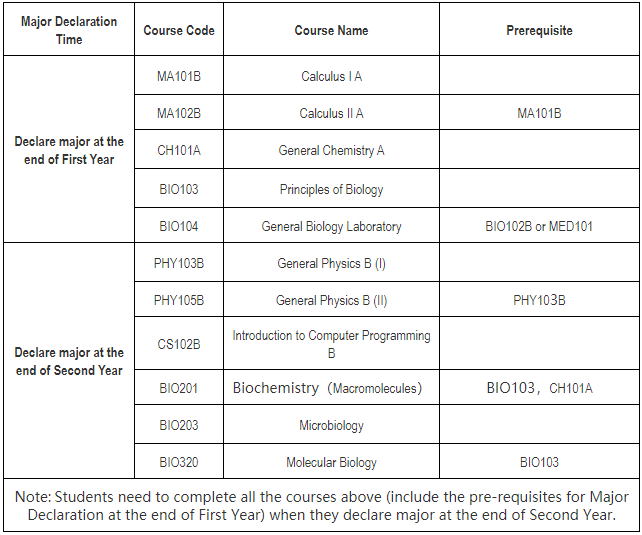
VIII. Requirements for of GE Required Courses
(I) Science Module
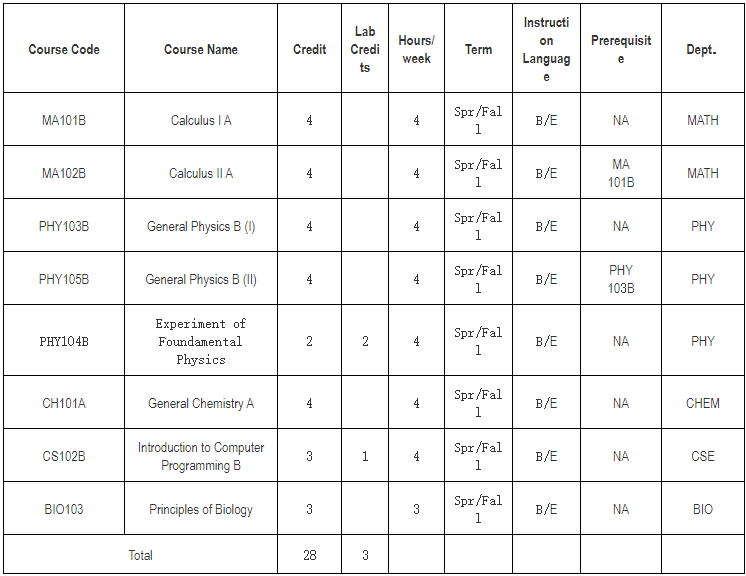
(II) Physical Education
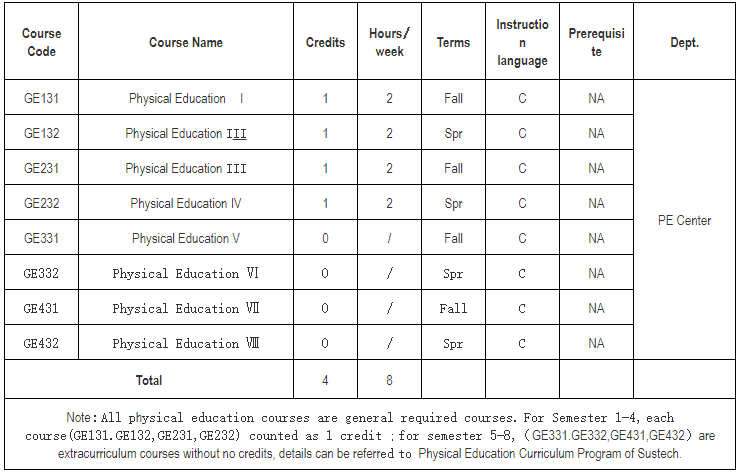
(III) Chinese Languages & Culture
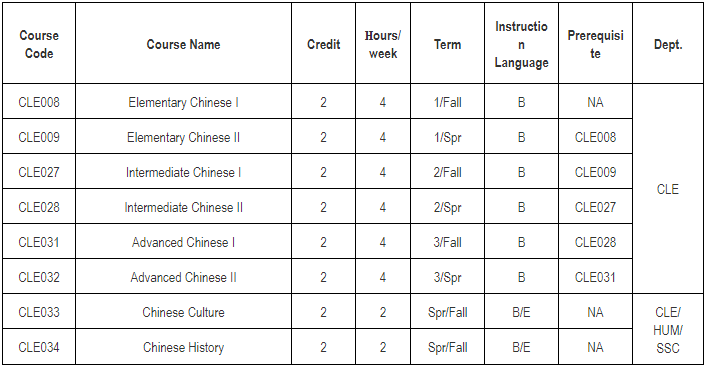
(IV) English Language
Students will undertake the English Placement Test and be placed into three levels according to the result of the test and their performance in the National College Entrance Exam. Students at different levels are required to take the courses with a different credit value in total.
Level A: 6 credits; SUSTech English III, and English for Academic Purposes
Level B: 10 credits; SUSTech English II, SUSTech English III, and English for Academic Purposes
Level C: 14 credits: SUSTech English I, SUSTech English II, SUSTech English III, and English for Academic Purposes.
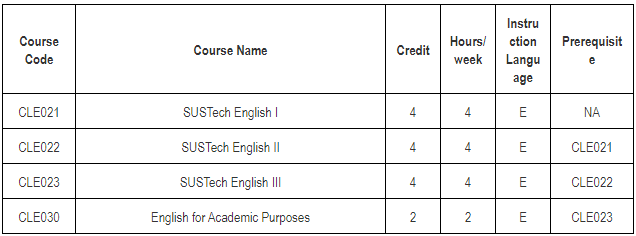
IX. Requirements for of GE Elective Courses
(I) Students are required to complete 4 credits for the Humanities Module and Social Sciences Module respectively, and 2 credits for the Music and Art Module. (Information about the available courses and the instruction language will be announced before the course selection session)
(II) Students are required to complete 4 credits for Science Module
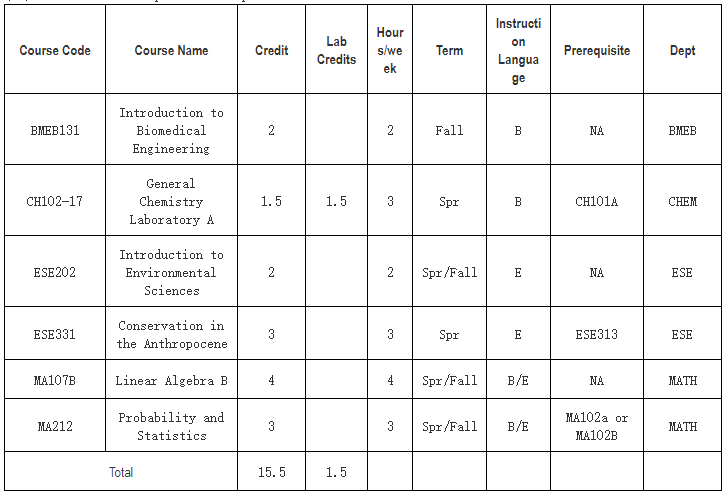
X. Major Course Arrangement
Table 1: Major Required Course (Foundational and Core Courses)
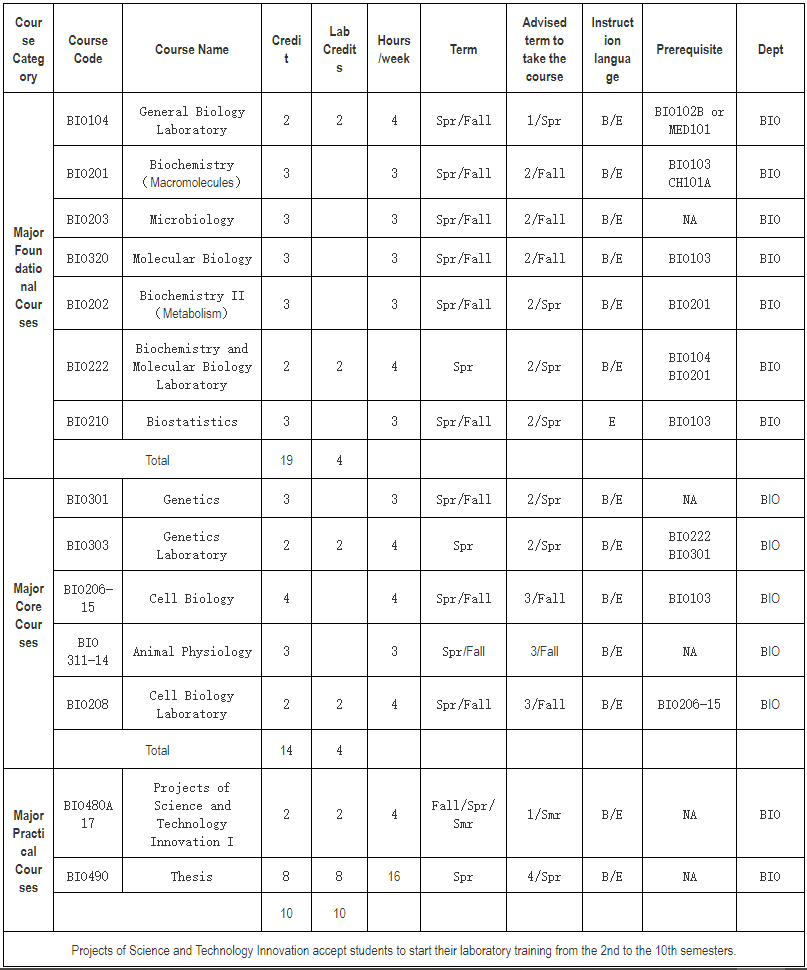
Table 2: Major Elective Courses
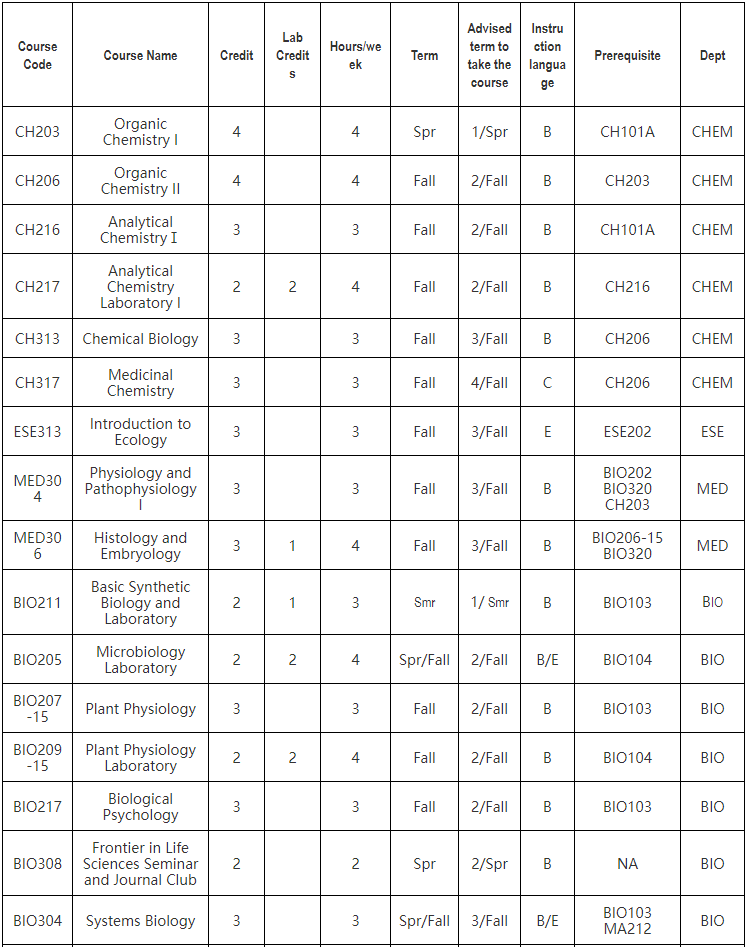
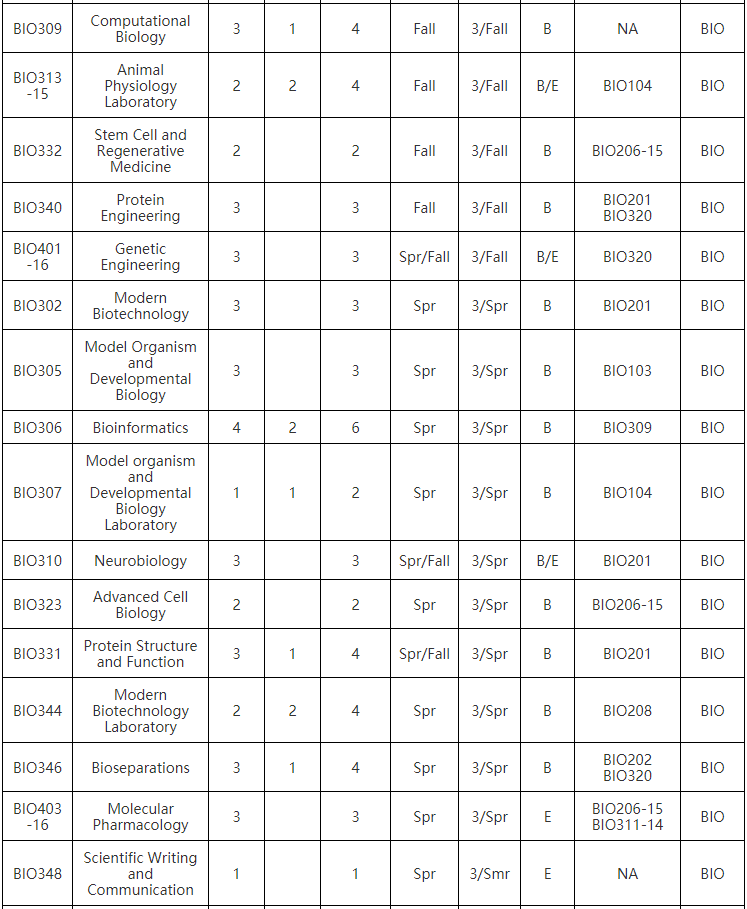
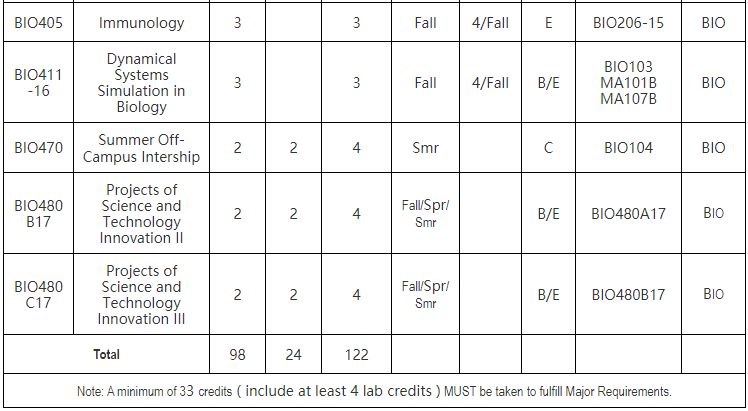
Table 3: Overview of Practice-Based Courses
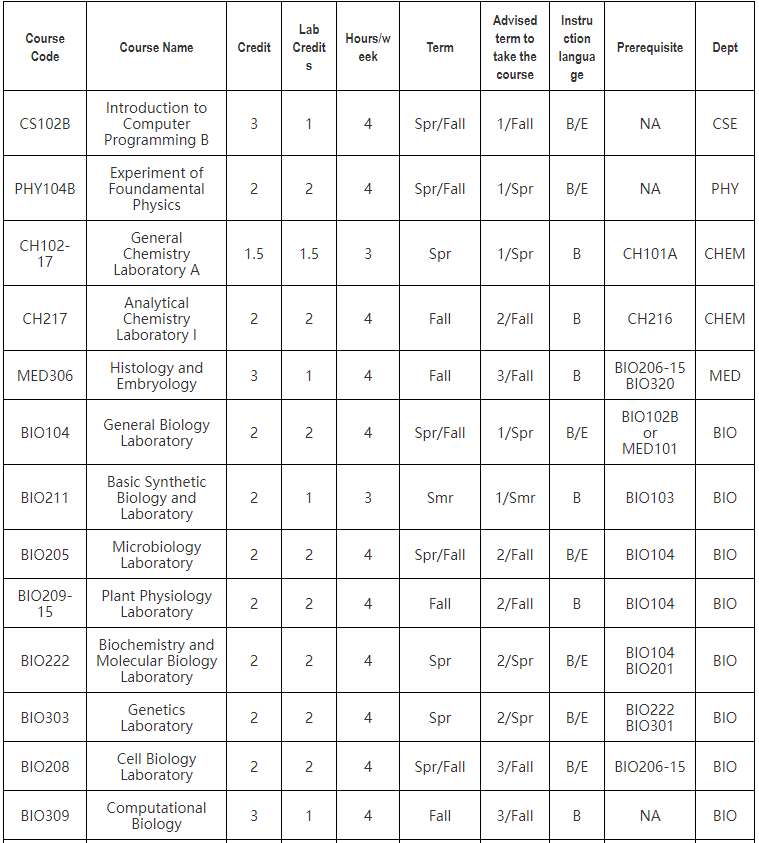
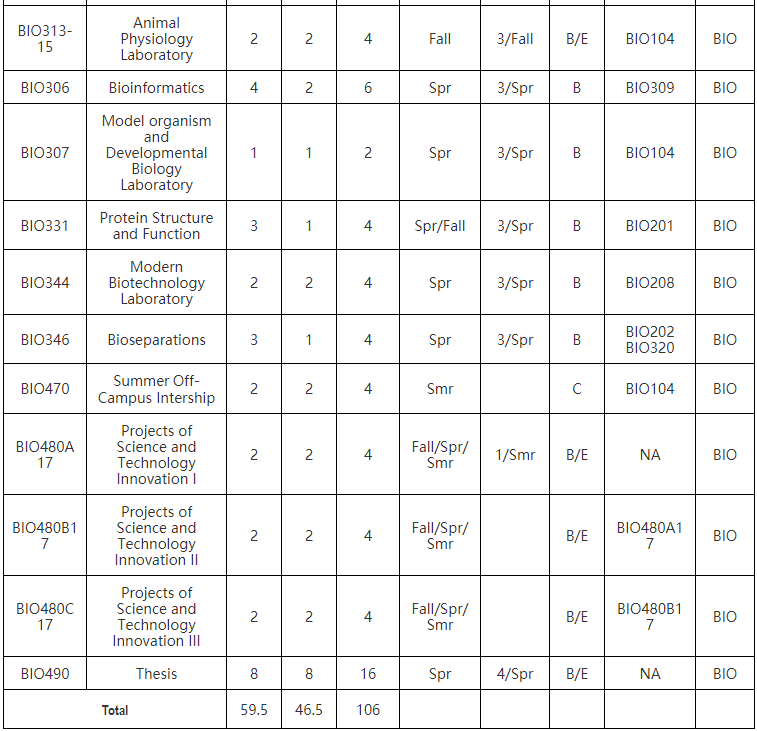
Table 4: Overview of Course Hours and Credits

Curriculum Structure of Biological Sciences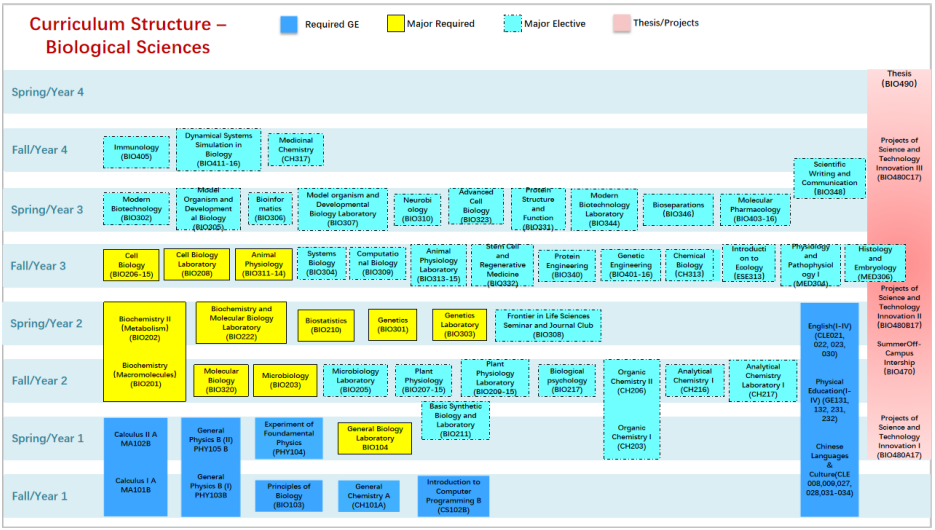
京ICP备13028878号-6





